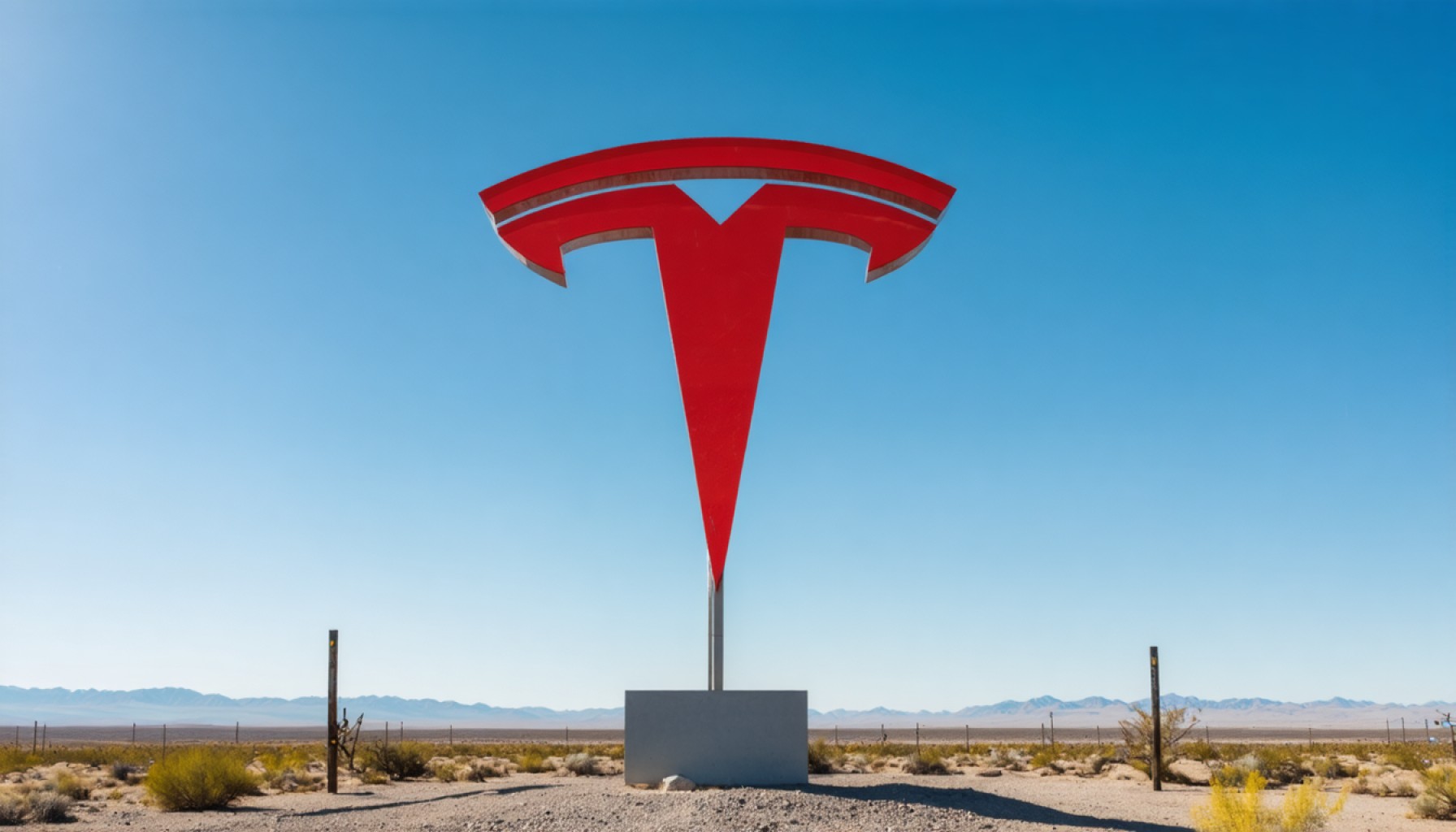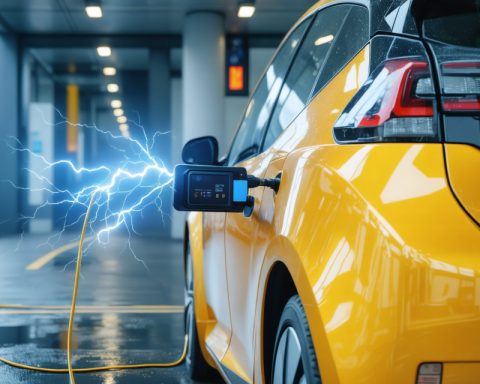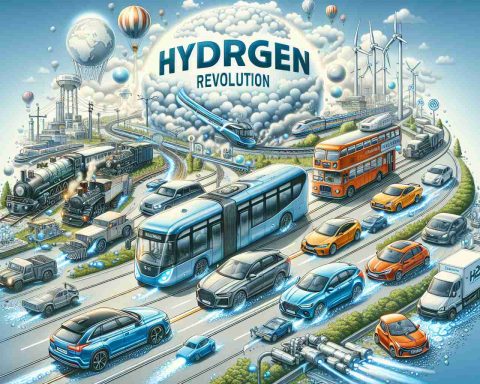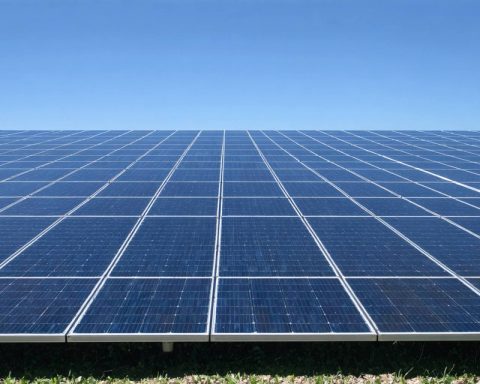- Tesla showrooms and vehicles are increasingly targeted in acts of vandalism across North America.
- Incidents include incendiary devices in Austin, vandalized Teslas in Ontario, and firearm attacks in Las Vegas.
- Conspiracy theories suggest involvement by figures like George Soros, but lack evidence.
- The FBI attributes these acts to “lone offenders” and not an organized conspiracy.
- The acts are classified as federal crimes, with potential charges of domestic terrorism.
- Public figures such as Trump and Attorney General Pam Bondi call for severe penalties for offenders.
- There is ongoing debate about the motivations behind these acts, touching on issues of corporate responsibility and socio-political dynamics.
Tensions have escalated dramatically as Tesla showrooms and vehicles become frequent targets of vandalism across North America and beyond. These brazen attacks have prompted an array of reactions ranging from conspiracy theories to intense federal investigations.
Picture this: incendiary devices discovered in the heart of Austin, Texas, a network of defaced Teslas scratched and torched in Ontario, Canada, and within the landmarks of Las Vegas, gunshots rang out, leaving shells of vehicles charred and scarred with graffiti proclaiming “RESIST”. The scenes are like a tumultuous thriller unraveling from region to region.
In a cacophony of accusations and theories, high-profile figures such as Donald Trump and Elon Musk have lent credence to unsubstantiated claims that billionaire figureheads, including George Soros, might be pulling invisible strings behind these destructively choreographed protests. Yet, much of this narrative rests on speculation rather than substantiated evidence. Elon Musk’s widespread insinuations circulated among the millions, further blurring the line between fact and fiction.
Contrasted against this backdrop are the steadfast investigations by the FBI. They’ve clearly stated that these acts bear the hallmark of “lone offenders” employing “improvised incendiary devices and firearms” with minimal coordination or planning. These assertions challenge the notion of an orchestrated grand scheme funded by shadowy billionaires. Instead, they paint a picture of impulsivity and isolated discontent.
Federal forces are not turning a blind eye. Under the directive of the FBI, special task forces have been mobilized. An explicit warning was issued: these acts are considered federal crimes, with perpetrators potentially facing severe legal repercussions labeled as domestic terrorism.
In the political crucible of today, statements from leaders like Trump, who whimsically suggests incarceration in El Salvador’s notoriously harsh prisons for these vandals, further fuel public imaginations and polarized perspectives.
Meanwhile, Attorney General Pam Bondi steps forward, unyielding, charging numerous individuals suspected in these acts of vandalism. Her stern warnings resonate through legal corridors, promising hefty sentences for those found guilty and keen focus on uncovering any potential financiers behind this tumult.
Yet, within the storm of allegations and cracked windshields, a broader question looms — what fuels such vehement acts of dissent? While the courtroom battles proceed, we are left to ponder the societal frictions that ignite these flames of defiance against technological icons like Tesla. As investigations continue, the discourse surrounding corporate responsibility, environmental activism, and socio-political dynamics persists, urging all of us to distinguish fact from frenzy and fostering dialogue over division.
What Is Driving Tesla Vandalism? Exploring the Real Causes and Impacts
Understanding the Root Causes of Tesla Vandalism
The rise in vandalism targeting Tesla vehicles and showrooms across North America raises critical questions about the underlying motivations and mechanisms behind these acts. With incidents involving incendiary devices, graffiti, and gunfire, it’s clear these actions are both deliberate and charged with deeper socio-political undercurrents.
Factors Fueling the Attacks
1. Technophobia and Resistance to Change
Tesla, as a symbol of technological innovation and the shift towards electrifying transportation, can evoke strong feelings of technophobia. For some, this evolution challenges traditional norms and economic structures, prompting backlash.
2. Environmental Concerns and Greenwashing Accusations
Though Tesla champions sustainability through electric vehicles, it faces accusations from some environmental activists who argue that manufacturing processes and energy sources for battery production are environmentally detrimental.
3. Economic Displacement
Automation and electric vehicles are reshaping job markets. Workers in traditional energy sectors, such as coal and oil, might view Tesla as a threat to their livelihoods.
4. Conspiracy Theories and Political Polarization
The involvement of high-profile figures like Donald Trump and Elon Musk in promulgating conspiracy theories, such as linking these attacks to figures like George Soros, reflects and exacerbates existing political tensions.
Industry Trends and Market Impact
1. Increased Security Measures
In response to these attacks, expect companies like Tesla to enhance security at showrooms and develop technologies to protect vehicles, such as advanced surveillance and anti-theft systems.
2. Potential Financial Impact
Continued vandalism could deter potential buyers concerned about the safety and longevity of their investments, impacting Tesla’s sales and market reputation.
Real-World Use Cases and Predictions
Adaptation in Urban Planning
Cities might integrate better security infrastructure for charging stations, particularly in areas with high vandalism rates. Expect to see enhanced street lighting, surveillance cameras, and possibly community watch programs.
Shift in Corporate Policy
Tesla and other automakers could pursue public relations campaigns to address misconceptions and underline their commitment to sustainable and responsible manufacturing.
How-To Steps for Tesla Owners
1. Enhance Vehicle Security:
– Invest in GPS trackers and dash cameras to monitor your vehicle’s location and conditions in real time.
– Park in well-lit areas where possible and consider using residential charging stations.
2. Stay Informed:
– Stay updated on the latest developments regarding local incidents and adjust security measures accordingly.
3. Engage in Community Dialogue:
– Participate in or organize local forums to discuss and address the economic and environmental impacts of new technologies. Building community understanding can reduce misdirected hostility.
Conclusion and Actionable Recommendations
The recent Tesla vandalisms are a mirror reflecting broader societal and political frictions. Understanding these forces can help us address the core issues constructively.
Quick Tips:
– Secure your vehicle with modern tracking technology.
– Educate yourself and others about the economic and environmental roles of new technologies.
– Foster community involvement to bridge understanding between different societal groups.
For more information and the latest updates, please visit the official FBI and Tesla websites.














